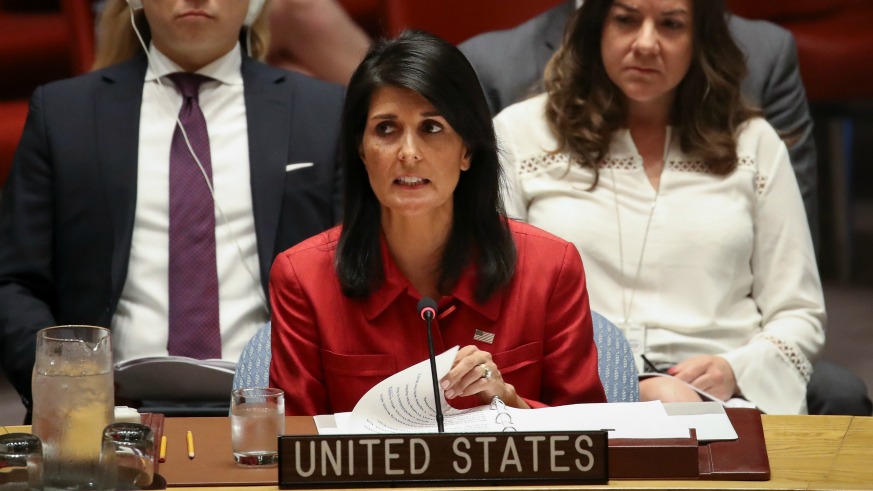Over the weekend, United Nations Ambassador Nikki Haley announced new economic sanctions on Russia for its backing of Syrian President Bashar al-Assad. On Monday, President Trump reversed course, saying that additional sanctions were unwarranted.
What are economic sanctions?
Economic sanctions are financial penalties levied by a government against another government, a business or an individual. They could include freezing assets, banning trade or levying tariffs. The goal could be to punish a government for human-rights abuses, deny bad actors money to continue their bad actions, or coerce a government into doing something it doesn’t want to do (or stop doing something it wants to keep doing).
For example, as punishment for Russia’s invasion of Ukraine, the U.S. froze assets of certain Russian banks and oligarchs connected to Putin, and prohibited U.S. firms from doing business with them.
“Never have [sanctions] enjoyed so much popularity as they do today,” writes Edward Fishman in “Foreign Affairs.” On virtually every major foreign problem—North Korea’s belligerence, Iran’s nuclear aspirations, Russia’s aggression, the Islamic State’s (or ISIS’) brutality—the U.S. government has turned to some form of sanctions as an answer. Their value is one of the few things that former President Barack Obama and President Donald Trump agree on.”
But do they work?
Are economic sanctions effective?
That’s debatable.
After all, the U.S. has enacted sanctions on Russia, Syria and North Korea, yet the underlying issues — Russian belligerence, Assad’s civil-rights abuses and North Korea’s nuclear program — persist. President Barack Obama levied sanctions against Iran to stop its own nuclear program starting in 2010, but it took many rounds of talks and the cooperation of five other nations for the Iran nuclear deal to be signed in 2015.
“All too often sanctions turn out to be little more than expressions of U.S. preferences that hurt American economic interests without changing the target’s behavior for the better,” writes Richard N. Haass of the Brookings Institution. “As a rule, sanctions need to be less unilateral and more focused on the problem at hand.” He points out that sanctions can have unintended economic consequences, can lead to “sanctions fatigue” among allies and tend not to accomplish large goals in a short time frame.
“There are very few cases where you can definitely identify sanctions as having had a success, except sometimes in combination with other factors,” Adam Roberts, a professor at Oxford University, told the BBC. “Arguably they contributed something to the change in white minority Rhodesia that led to black majority rule; arguably the sanctions against South Africa were one factor that contributed to change there.” But, he pointed out, they were not the definitive element.
So why are they increasingly used, if they’re not provably effective? “There is nothing else between words and military action if you want to bring pressure upon a government,” said Jeremy Greenstock, former British ambassador to the UN. “Military action is increasingly unpopular and in many ways ineffective in a modern legitimacy-oriented world, and words don’t work with hard regimes. So something in between these is necessary. What else is there?”
















